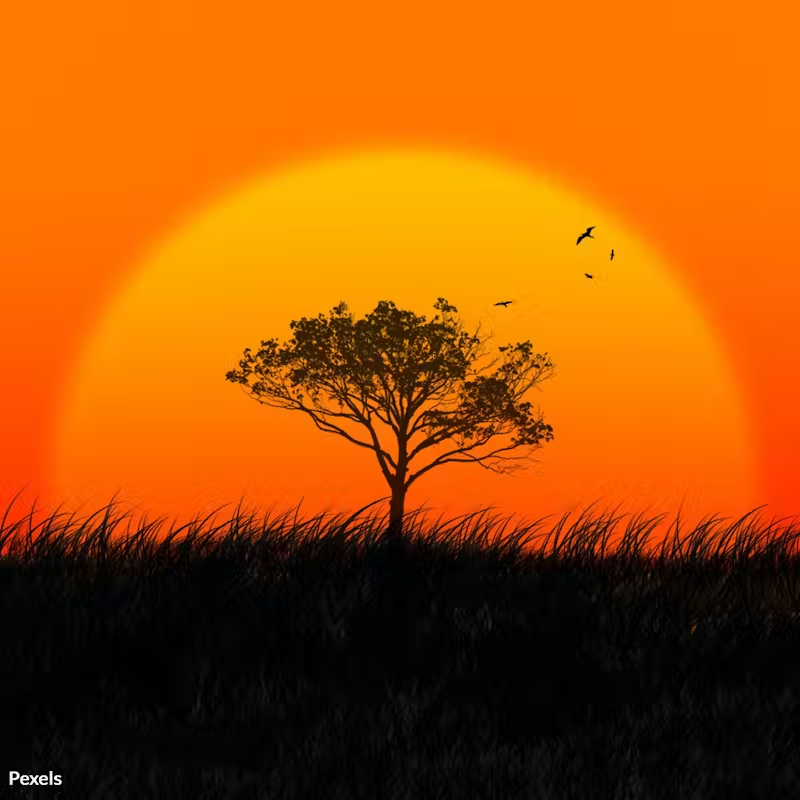Act Now or Lose Africa's Sky Guardians Forever
1,029 signatures toward our 30,000 Goal
Sponsor: The Animal Rescue Site
Join the critical fight to save Africa's majestic birds of prey from looming extinction - their survival and our ecological future hang in the balance.

Africa's skies are losing their guardians. The majestic birds of prey, which have soared across our continent for centuries, are now facing an extinction crisis. This alarming situation threatens not just these iconic species, but the very balance of our ecosystems.
The Crisis at Hand
Recent studies have shown a staggering decline in Africa's raptor populations. In the last few decades, 88% of the 42 studied species have seen significant population reductions, with many crossing the dreaded threshold of potential global extinction1. The Secretarybird, Lappet-faced Vulture, Bateleur, and others, symbols of our natural heritage, are now on the brink of disappearing forever.
These birds are more than just a part of our natural beauty; they play a crucial role in the ecosystem. As apex predators and scavengers, they help control prey populations and limit the spread of diseases. Their loss would disrupt the ecological balance, affecting other wildlife and even human populations2.
The Human Factor
The primary cause of this crisis is human activity. Rapid expansion of human populations and agricultural land, particularly in West and Central Africa, has led to significant habitat loss and degradation. Other threats include poisoning, shooting, trapping, and collisions with energy infrastructure. This combination of factors has created a hostile environment for these birds, pushing them towards extinction3.
Protected Areas Provide Hope
Protected areas, which should be sanctuaries for wildlife, are currently insufficient in size and effectiveness. These areas only cover 14% of Africa's land, falling short of the global target of 30% set at the Convention of Biological Diversity (COP 15) in 20223. The ecological integrity of many of these areas is also declining, reducing their effectiveness as refuges for raptors1.
The Time to Act is Now
We stand at a critical juncture. The decisions we make today will determine the fate of these magnificent birds. This is why we call on you to join our urgent mission to save Africa's birds of prey. By signing our petition, you will be urging the leaders of Kenya, South Africa, and Botswana to expand protected areas and manage existing ones more effectively. Your voice will contribute to a global effort to preserve these species for future generations.
Sign the Petition Today
Imagine a future where the skies of Africa are once again filled with the majestic flights of eagles, vultures, and falcons. A future where our actions today have helped preserve the natural balance for tomorrow. This future is possible, but only if we act now.
Become part of a collective voice advocating for the expansion and improved management of protected areas. Sign the petition and, together, we can turn the tide for Africa's birds of prey. Sign the petition today and be a part of the solution.
- Himanshu Nitnaware, Down to Earth (7 January 2024), "African raptor population declines 88% in 40 years, many crossing IUCN threshold: Report."
- Rochelle Gluzman, Agence France-Presse (4 January 2024), "Africa's large birds of prey facing 'extinction crisis': study."
- Cristen Hemingway Jaynes, Ecowatch (4 January 2024), "Africa’s Birds of Prey Are Experiencing an Extinction Crisis."
The Petition:
To the President of Kenya, President of South Africa, and President of Botswana,
We, the undersigned, are unified in our concern for the rapidly declining populations of Africa's large birds of prey and are petitioning for immediate and decisive action. The majestic creatures like the Secretary Bird, Snake Eagle, and many others, intrinsic to our continent’s rich biodiversity, face an alarming extinction crisis. This situation demands urgent attention and action from your esteemed offices.
The Need for Conservation
Africa's birds of prey are not just symbols of our natural heritage; they are vital cogs in our ecological systems. As apex predators and scavengers, they maintain the balance of ecosystems by controlling prey populations and scavenging, which helps in limiting the spread of diseases. The loss of these species could have irrevocable consequences on our environment and, subsequently, on the lives and livelihoods of our people.
Call for Expanding Protected Areas
In alignment with the goals set at the Convention of Biological Diversity (COP 15) in 2022, we urge you to commit to expanding protected areas in our countries. The target of effectively conserving and managing at least 30 percent of the world's surface by 2030 is not just an international goal but a necessity for the survival of our unique wildlife, including our birds of prey. Currently, protected areas in Africa cover a mere 14% of the land, significantly lower than the global target. Expanding these areas is a critical step towards providing safe habitats for these species and reversing their path towards extinction.
Improving Management of Existing Protected Areas
Moreover, we implore you to focus on the effective management of existing protected areas. Enhanced management involves ensuring these areas are adequately funded, patrolled, and free from illegal activities that threaten wildlife. It also means investing in scientific research to understand better the needs of these species and how best to protect them.
A Brighter Future for Africa and Its Wildlife
By taking these actions, we are not just saving birds of prey; we are ensuring a sustainable and balanced ecosystem for future generations. These steps will serve as a testament to our commitment to preserving our natural heritage and promoting a harmonious coexistence between humans and wildlife.
We trust in your leadership and vision for a continent where wildlife thrives alongside human development. Together, we can secure a brighter and more sustainable future for Africa and its magnificent wildlife.
Sincerely,